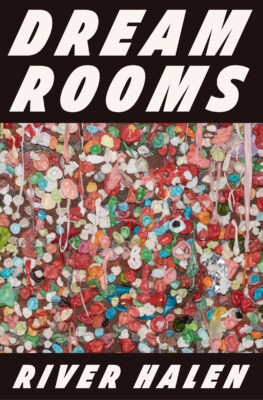It is at once shattering and comforting to read River Halen’s Dream Rooms, a series of poems that deflect themselves into essays with a poetic bent. Deeply personal – assuming that “[th]ere is no such thing as literature. / Everything is just a diary / or a manifesto” – Halen tracks a route of gender discovery, from positioning themself as an “out bisexual person,” to “calling [them]self a lesbian,” and later telling “everyone [they are] trans.” Approached with delicacy and nuance, and a sociable narrative style that broaches the intricacies of friendships, relationships, and family, lived difficulty culminates in “new self-understanding [… that] felt euphoric.” What might appear to be a linear progression never feels simplistic or definitive.

Dream Rooms
River Halen
Book*hug Press
$23.00
paper
200pp
9781771667784
Despite the weight of this collection, it is also buoyed by a deft sense of humour. The speaker’s grandmother thinks that “rhododendrons” is a synonym for “rodents,” and the speaker wears fluffy white socks as “bunny lingerie” to provide kinship for an indisposed pet rabbit. Intellect possesses the ability to see opposing truths in the same conflict or to analyze beyond tension towards a wry laugh. As Halen writes, “There is an angle from which this story of my family’s trauma is very funny.” Dream Rooms is an impressive collection that invites the reader into scenes of tenderness and confrontation, suffused with the imaginary as much as with the everyday, or “[t]he way dreams connect to new landscapes that are really just the same familiar landscapes.”mRb






0 Comments